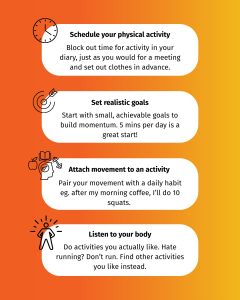 Movement Every day is Important
Movement Every day is Important
Whether you’re at home or work, juggling family, or enjoying retirement, finding time for movement everyday is important and beneficial at any age.
Here are our top tips for finding motivation to move!
Schedule your physical activity into your diary like you would a meeting, visual cues are a good reminder. Help your motivation by laying out your clothes and shoes in advance as another prompt.
Start with small goals. Doing any physical activity is better than doing none. If you currently do no physical activity, start by doing some, and gradually build up to the recommended amount. Be active on most, preferably all, days every week, aiming to build up to 150 minutes of physical activity across the week.
Attach movement to an activity, e.g. doing 10 squats after your morning coffee, or going for a walk when you’re talking on the phone.
Listen to your body and do movements that you are comfortable with. Some activities could be brisk walking, swimming, social tennis, or dancing.

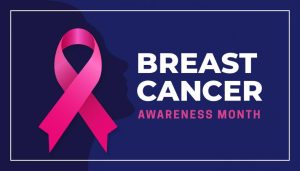 Breast Cancer Awareness Month October
Breast Cancer Awareness Month October

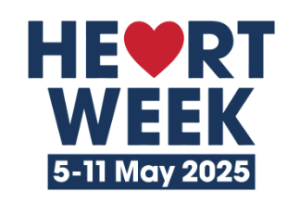 Heart Week
Heart Week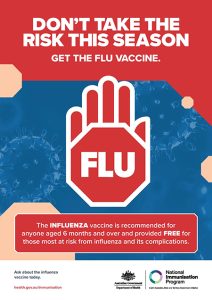 Flu Vaccines Free
Flu Vaccines Free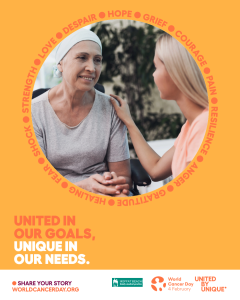

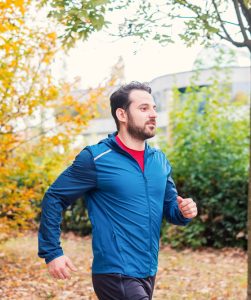

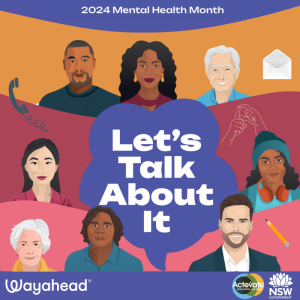 Let’s Talk About It
Let’s Talk About It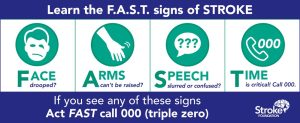 National Stroke Week
National Stroke Week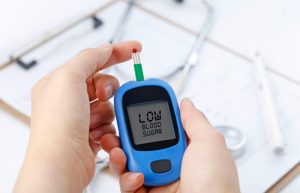 National Diabetes Week
National Diabetes Week Did you know?
Did you know?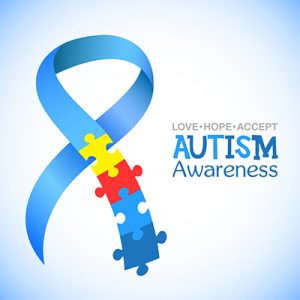 April 2024 is Autism Acceptance Month
April 2024 is Autism Acceptance Month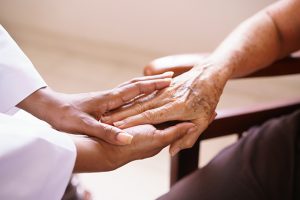
 December is Decembeard – be Bold for Bowel Cancer
December is Decembeard – be Bold for Bowel Cancer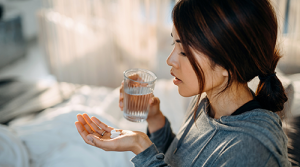

 Mental Health and Wellbeing
Mental Health and Wellbeing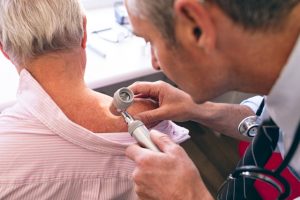
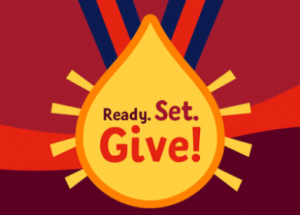 National Blood Donor Week
National Blood Donor Week
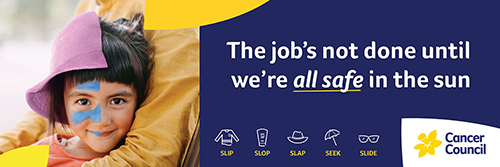 2021 marks the fortieth anniversary of the iconic
2021 marks the fortieth anniversary of the iconic 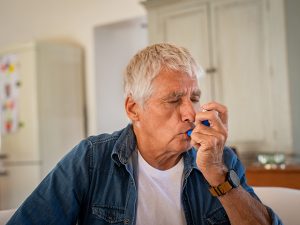
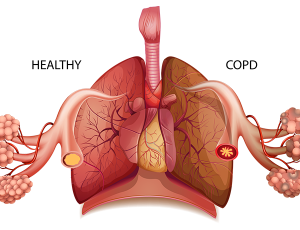 COPD – Chronic Obstructive Pulmonary Disease
COPD – Chronic Obstructive Pulmonary Disease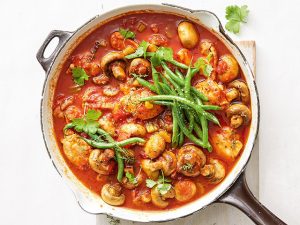 Healthy Hearty Meal for those Cold Nights
Healthy Hearty Meal for those Cold Nights